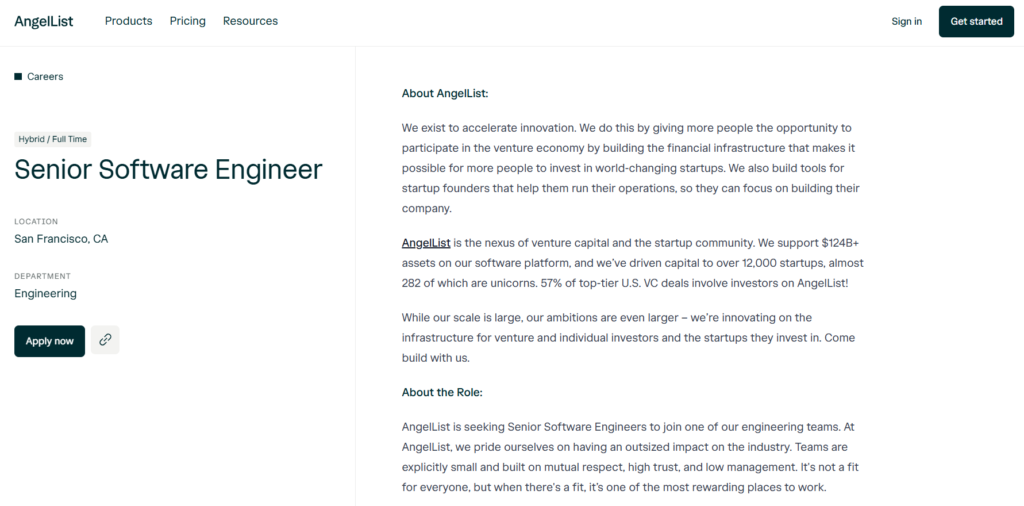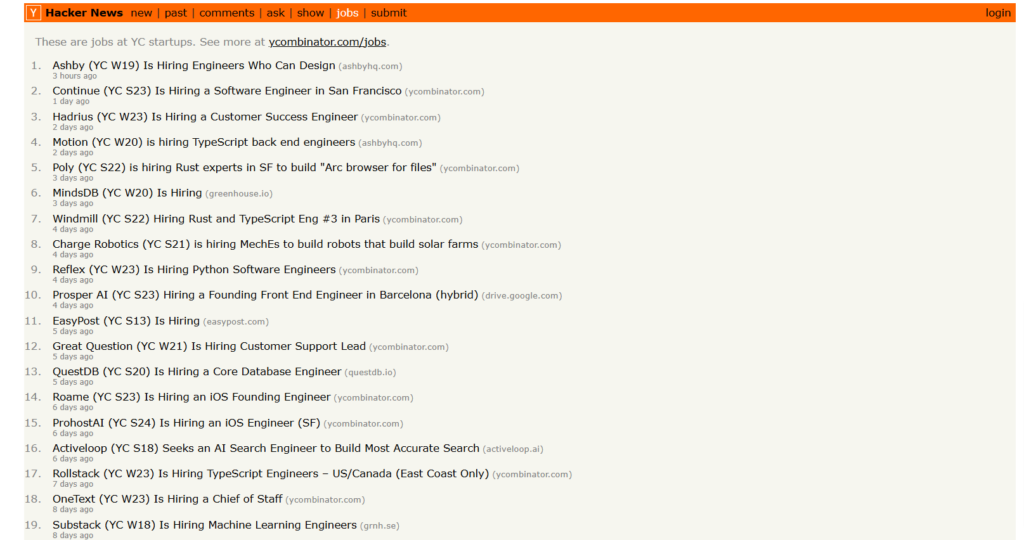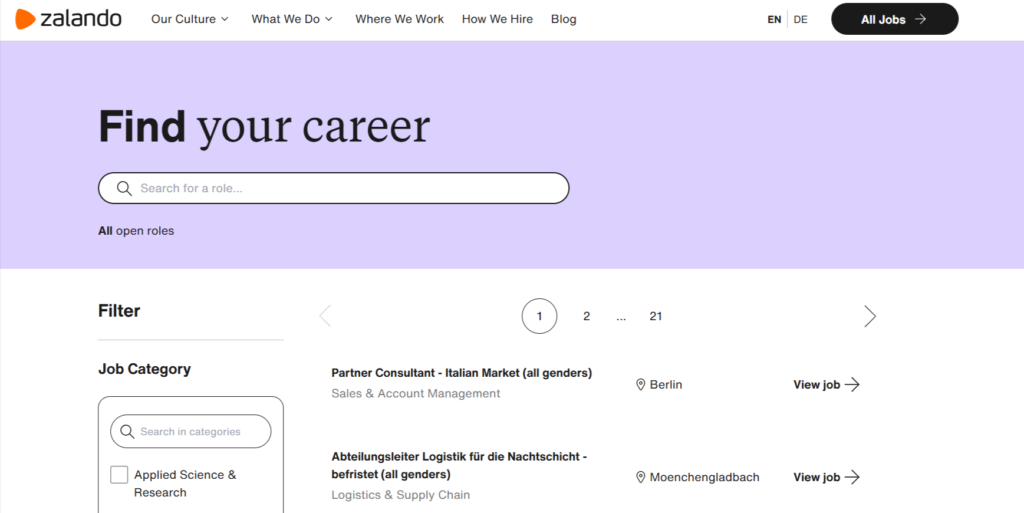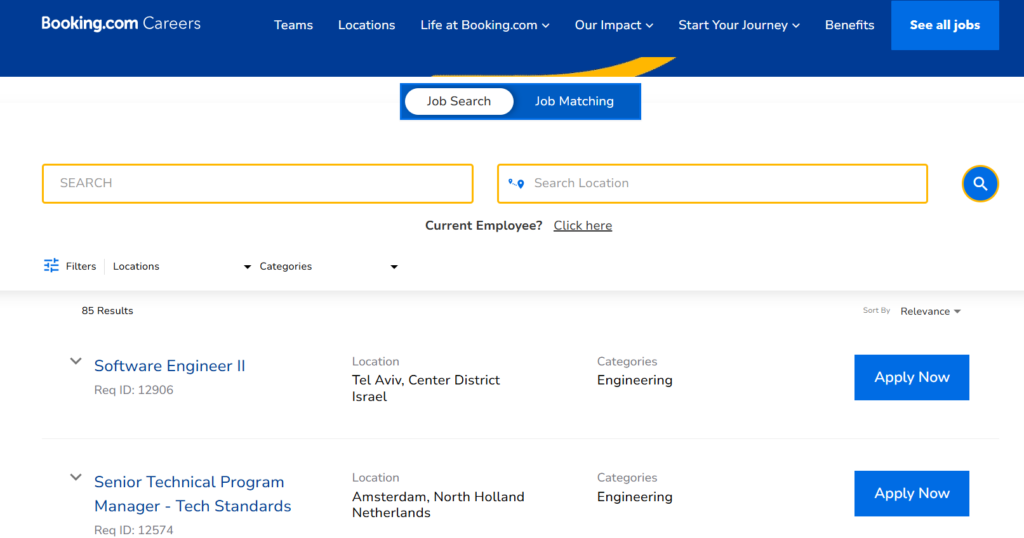If you’re an SDE (Software Development Engineer) in India, you might wonder why you should consider looking for jobs outside the country.
Let me tell you, that exploring SDE jobs outside India can be a game-changer for your career. The tech landscape is vast and varied beyond Indian borders, and there’s a treasure trove of opportunities waiting for those who dare to look beyond.
Whether you’re a fresh graduate or an experienced developer, landing a tech role overseas can provide new experiences, higher salaries, and a broader career perspective.
In this article, we’ll explore how to navigate this journey, from understanding the impact of the recession to cracking international interviews and finding the right job platforms.
Table of Contents
The Impact of Recession on Job Markets

Ah, the recession—an ever-present concern for many. It’s true that the job market is tougher, with experienced engineers and freshers alike competing for the same roles. However, this challenging landscape is not without its silver linings.
Companies are increasingly open to paying competitive salaries for the right talent, especially when skills are exceptional. This is the perfect time to hone your abilities and distinguish yourself.
Remember, while the market is competitive, it’s also full of opportunities for those who are well-prepared and proactive.
Interview Process for Overseas Jobs
Applying for overseas jobs for Indians comes with its own set of challenges, primarily in the interview process. Here’s a brief rundown of what you might encounter:
- Take-Home Project: Often required for freshers and entry-level roles (SDE 1). You’ll typically have about a week to complete this.
- Data Structures and Algorithms (DSA): This is a staple in interviews, assessing your problem-solving and logical skills. Every candidate, regardless of experience, will likely face this round.
- System Design: For senior roles (SDE 2 and above), expect detailed system design interviews. These assess your ability to build scalable and efficient systems.
- HR Round: The final step, common across all roles, where they gauge your fit within the company culture.
Essential Preparation Strategies for SDE Roles
Navigating the global job market requires more than just basic programming skills. To excel in foreign jobs for freshers and experienced professionals alike, you need a well-rounded approach to preparation.
Here’s an in-depth look at the essential strategies to boost your chances of landing an SDE role abroad.
Master Key Languages and Technologies
1. Popular Programming Languages:
- Java: With 64% of companies using Java, it remains a dominant language for enterprise applications and Android development. It’s renowned for its reliability and scalability.
- Python: Employed by 38% of companies, Python is versatile and widely used in data science, machine learning, web development, and automation. Its simplicity and readability make it an excellent choice for both beginners and advanced developers.
- JavaScript: Utilized by 14% of companies, JavaScript is crucial for web development. Understanding its latest frameworks and libraries can significantly enhance your front-end development skills.
- Additional Languages: While Java, Python, and JavaScript are crucial, consider learning other languages based on the job requirements and industry trends:
- C#: Often used in enterprise environments, particularly for developing on the Microsoft stack.
- Go: Known for its performance in cloud services and scalable systems.
- Rust: Emerging for system-level programming due to its safety and concurrency features.
2. Advanced Technologies:
- Cloud Platforms: Familiarize yourself with major cloud services like AWS, Azure, and Google Cloud. Cloud proficiency is increasingly important as companies shift to cloud-native applications.
- Containerization and Orchestration: Tools like Docker and Kubernetes are essential for managing applications in a microservices architecture. Understanding these can set you apart in modern development environments.
- DevOps Practices: Knowledge of CI/CD pipelines, automated testing, and infrastructure as code (IaC) tools like Terraform and Ansible can enhance your appeal to employers who value streamlined and efficient development processes.
Focus on In-Demand Frameworks
1. Front-End Frameworks:
- React: Dominating the front-end landscape, React’s component-based architecture and extensive ecosystem (e.g., Redux for state management) make it highly sought after. It’s ideal for building dynamic and high-performance user interfaces.
- Vue.js: Known for its simplicity and ease of integration, Vue.js is a strong choice for modern web applications and has seen significant adoption in the developer community.
- Angular: While its usage is slightly less compared to React and Vue, Angular is still a robust framework for building large-scale enterprise applications with its comprehensive tooling and two-way data binding.
2. Back-End Frameworks:
- Spring Boot: A leading framework for Java developers, Spring Boot simplifies the development of production-ready applications and microservices. Its extensive features and community support make it a popular choice in enterprise environments.
- Django: For Python developers, Django offers a high-level framework that emphasizes rapid development and clean, pragmatic design. It’s great for building robust, scalable web applications with less boilerplate code.
- Express.js: This minimalist framework for Node.js is excellent for building fast and scalable server-side applications. Its simplicity and flexibility are favored by many developers working in JavaScript.
3. Additional Skills and Technologies:
- GraphQL: An alternative to REST APIs, GraphQL allows for more efficient data querying and manipulation. It’s gaining traction for its ability to provide a more flexible and efficient API layer.
- TypeScript: Adding static types to JavaScript, TypeScript improves code quality and maintainability. It’s especially useful in larger projects and is increasingly adopted in modern development stacks.
- Testing Frameworks: Proficiency in testing frameworks like JUnit (for Java), PyTest (for Python), and Jest (for JavaScript) is crucial. Automated testing ensures code reliability and reduces the chances of introducing bugs.
Build a Portfolio and Network
1. Showcase Your Work:
- GitHub: Regularly update your GitHub profile with personal projects, contributions to open-source projects, and coding exercises. A well-maintained portfolio demonstrates your skills and commitment to potential employers.
- Personal Website: Create a personal website to highlight your projects, skills, and experience. This can serve as a central hub for showcasing your work and attracting potential employers.
2. Networking:
- Professional Networks: Engage in online communities and professional networks like LinkedIn, GitHub, and Stack Overflow. Participate in discussions, share knowledge, and connect with industry professionals.
- Tech Meetups and Conferences: Attend tech meetups, conferences, and webinars to stay updated on industry trends and make valuable connections. Many tech communities have local chapters and virtual events that can broaden your network.
By mastering key languages and technologies, focusing on in-demand frameworks, and actively building your portfolio and network, you’ll be well-prepared to secure SDE jobs outside India and advance your tech career on a global scale.
Top Resources for Learning and Upskilling
- DSA: Check out Stanford’s algorithm specification on Coursera or the youtube channel of take U forward, Nick white, Neetcode, Algoright made easy, etc.
- System Design: Alex Xu’s ByteByteGo is a fantastic resource. His books are also worth exploring if you prefer reading.
- LeetCode: An excellent platform to practice coding problems frequently asked by top tech companies. Explore LeetCode’s website for various levels of challenges.
Recommended Job Platforms for SDE Positions
Finding the right job platform can make a significant difference in your job search, especially for SDE jobs outside India. Each platform has its unique strengths and focus areas, catering to different job seekers and industries. Here’s a detailed breakdown of some top platforms that can help you find your next tech role:
1. AngelList

AngelList is a prominent platform for startup jobs, making it an excellent choice for SDEs interested in joining the fast-paced and innovative world of startups. Here’s why AngelList stands out:
- Focus on Startups: AngelList is specifically tailored for startups, which often seek dynamic and adaptable engineers. If you’re passionate about working in a high-growth environment and want to be involved in shaping new products, this is the platform for you.
- Easy Application Process: The platform allows you to apply to multiple startups with a single application. You can also create a detailed profile showcasing your skills, experience, and interests, which startups can view when considering candidates.
- Equity Opportunities: Startups on AngelList frequently offer equity as part of the compensation package. This can be an attractive option if you’re interested in potential long-term gains from the company’s success.
2. Hacker News’ “Who is Hiring”

Hacker News “Who is Hiring” is a unique monthly thread on the Hacker News forum where companies post job openings. This platform is ideal for several reasons:
- High-Quality Listings: The job postings on this thread often come from reputable tech companies and startups known within the tech community. It’s a great place to find opportunities that may not be listed on more traditional job boards.
- Direct Engagement: Job seekers can directly interact with hiring managers and company founders through this thread. This direct line of communication can sometimes lead to quicker responses and more personalized interactions.
- Focus on Tech: The listings are primarily tech-focused, making it highly relevant for SDEs and other tech professionals looking for specialized roles in software development.
3. LinkedIn

LinkedIn is one of the most well-known and widely used job platforms globally. It offers several advantages for job seekers:
- Broad Reach: With millions of users and companies on LinkedIn, it provides a vast network of job opportunities across various industries and regions, including international positions.
- Advanced Search Filters: LinkedIn’s advanced search features allow you to filter job postings by location, company, industry, and even specific technologies. This makes it easier to find roles that align with your career goals and preferences.
- Networking Opportunities: Beyond job searching, LinkedIn is a powerful networking tool. You can connect with industry professionals, join relevant groups, and participate in discussions to increase your visibility and access to job opportunities.
4. Zalando

Zalando is a major player in the fashion e-commerce industry and offers a variety of tech positions. Here’s what makes Zalando a noteworthy platform for SDEs:
- Tech in Fashion: Zalando combines fashion with cutting-edge technology. If you have an interest in e-commerce and fashion, Zalando provides a unique opportunity to work on tech solutions in this niche sector.
- Innovative Projects: As a leading fashion retailer, Zalando invests heavily in technology to enhance customer experiences, optimize operations, and drive innovation. Working here can provide exposure to advanced tech stacks and projects.
- European Presence: While Zalando is based in Europe, it often has opportunities for remote work or roles in its various European offices. This can be a great option if you’re looking for international experience.
5. Booking.com

Booking.com is a well-known travel and tech company that offers diverse opportunities in both travel technology and software development:
- Travel and Tech Intersection: Booking.com operates at the intersection of travel and technology, providing roles that involve developing solutions for the travel industry. If you’re interested in working on tech solutions that enhance travel experiences, this platform is worth exploring.
- Global Opportunities: With offices around the world, Booking.com offers roles in various locations, making it a good option for those seeking international positions.
- Innovative Environment: The company focuses on innovation to provide better travel solutions and user experiences. Working at Booking.com can offer exposure to advanced technology and large-scale systems.
Conclusion
By leveraging these platforms, you can access a range of opportunities tailored to your interests and expertise in the tech industry. Whether you’re drawn to startups, tech-focused job boards, or specific sectors like fashion and travel, these platforms can help you find the right role and advance your career.
Embarking on a journey to secure SDE jobs outside India can be daunting but incredibly rewarding. With the right skills, preparation, and resources, you can not only find a job that aligns with your career goals but also broaden your horizons in the global tech industry. So, take that leap of faith—your next big opportunity might be just a few clicks away!
Feel free to reach out if you have any questions or need further guidance on landing an overseas job for Indian tech professionals. Happy job hunting!
Check out my other articles here.





